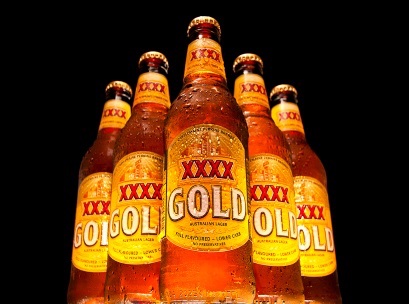
Australian brewing company Lion has followed up its pledge to be carbon neutral by 2020 with a commitment to use renewable electricity only to power its operations by 2025.
Lion CEO Stuart Irvine said in a statement on Thursday that the brewer had been inspired to bring forward the announcement of the next stage of its climate strategy after the positive response to its carbon target.
“Going into the summer months, we want consumers to crack open a cold Furphy, XXXX GOLD, Tooheys New, Little Creatures, Kosciuszko, or any of the fantastic beverages in our portfolio and know that they represent Lion’s long-term pledge to do the right thing by the environment,” he said.
And the task is already underway. In October, Lion revealed that more than 300 Lion-owned pubs across New South Wales and the ACT would be powered by renewables via a power purchase agreement between the venues and energy giant Engie.
The deal anchored by Lion Breweries alongside the Australian Hotels Association, Tourism Accommodation Australia and Engie’s retailer subsidiary Simply Energy will cover hundreds of pubs and hotels, as well as the Lion owned Tooheys brewery in Sydney.
It will also directly support the construction of a new renewable energy project, underwriting the construction of Engie’s 120MW Silverleaf Solar Farm, set to be built in Narrabri in regional New South Wales.
Beyond all of that, it is also just plain sound business. The company has said the deal will lock in wholesale electricity prices for the venues at $69 per MWh for the next 10 years, compared to wholesale electricity prices that have traded above $85/MWh for the last couple of years, before retailer margins are included.
“We are pooling our energy needs in the state, which includes our largest brewery Tooheys, together with the needs of participating NSW hotels. In 2020, this will see a typical hotel’s energy price drop from 11.5c per kWh to 6.9c per kWh – a 40 per cent saving, equating to around $18,000 a year,” Lion managing director James Brindley said at the time.
“Our customers are at the heart of this project, and Lion is focused on helping hotels right across NSW thrive. Like all businesses, pubs are feeling the pinch of rising energy costs.”
“In addition to striking a better deal for many hotels in NSW and the ACT, this aggregated PPA will allow Lion to reduce its carbon emissions in the state of NSW by 40 per cent,” Brindley added.
The brewer has also dabbled in installing solar of its own, including on the rooftop of the brewery behind one of its most iconic brands, XXXX.
As reported in June, Castlemaine Perkins – the original brewers of xxxx (pronounced “four-ex”) and a wholly owned subsidiary of Lion – installed a $2 million 690kW solar array on its 140-year-old Milton brewery.
At that same brewery, Lion has also spent over $5 million on innovations including “a state-of-the-art reverse osmosis plant which reuses waste water – enabling XXXX Gold to be produced at a ratio of 2.8 litres of water for every litre of beer produced, which is approaching world-leading levels of efficiency for brewing,” according to Lion Group supply chain director Ian Roberts.
“Lion is now proudly pulling every carbon abatement lever available,” said Irvine this week. “Not only have we committed to sourcing all our electricity from renewable sources to lower our emissions, but we are offsetting our remaining organisational footprint to put us in a carbon neutral position.
“We have been on this journey for quite some time, but speed is of the essence in addressing climate change,” he added.
“While we work towards our 2025 renewable electricity target, in the meantime our remaining emissions will be offset through a portfolio of verified projects focusing on bush regeneration and conservation projects that both cut carbon emissions and protect vital habitat and food sources for native wildlife.”
In its pledge to source only renewable energy Lion joins fellow Australian brewer CUB, which had all but reached its own 2020 100 per cent target by the end of 2018.
CUB signed a 12 year power purchase agreement with BayWa in March 2018, to buy less than half of the output of the Karadoc solar farm in Mildura, Victoria.
That deal was meant to account for nearly 90 per cent of its total electricity needs, with the remaining 10 per cent will come through rooftop solar installed on the company’s breweries.

Sophie is editor of One Step Off The Grid and deputy editor of its sister site, Renew Economy. Sophie has been writing about clean energy for more than a decade.



